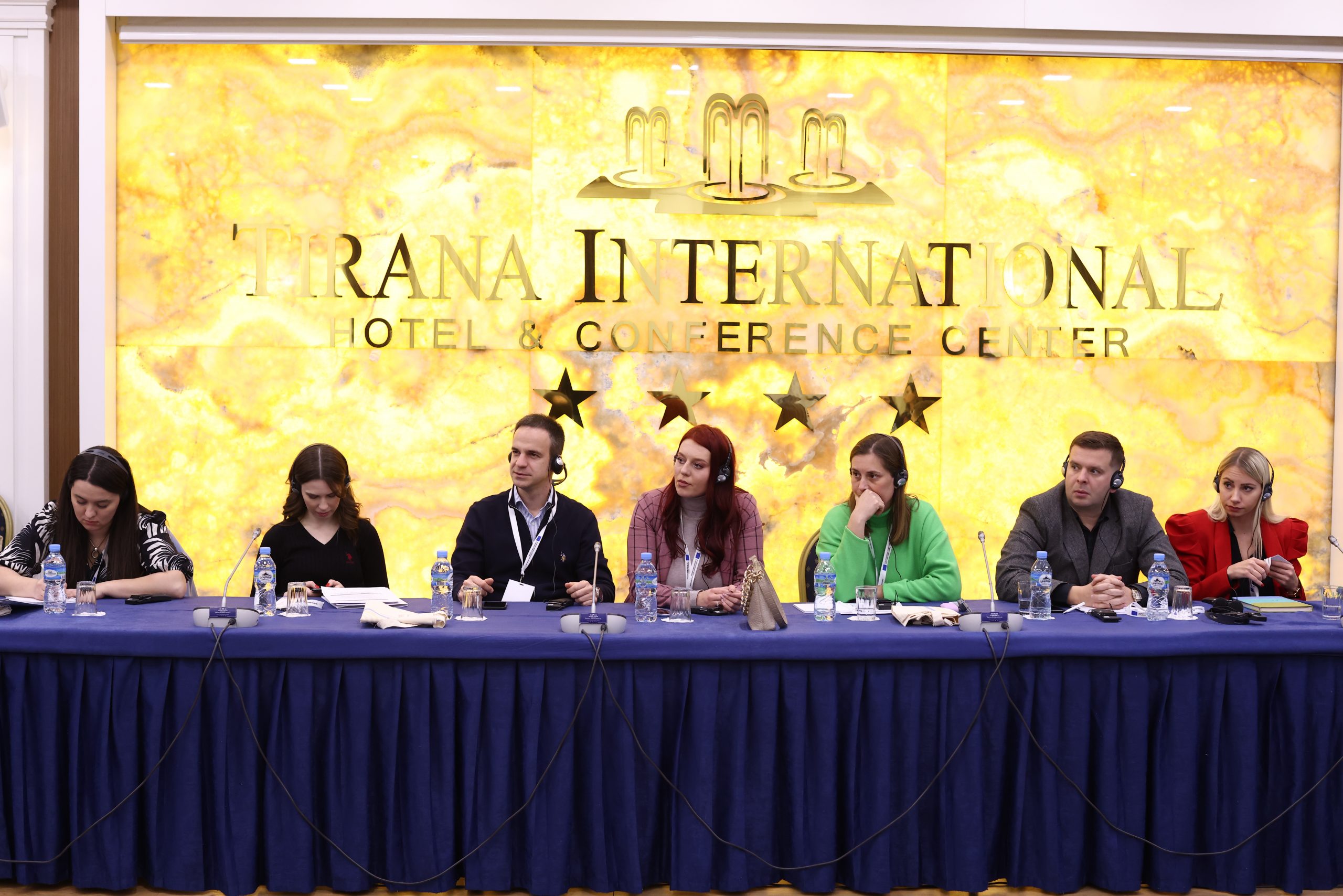
A three day P2P On-demand event organised by Civic Alliance from Montenegro in partnership with School for political studies from Albania and supported by the EU TACSO 3 project, took place in Tirana, Albania, from 25 to 27 February. More than 40 representatives from Montenegro and Albania from civil society organisations, young politicians, MPs, representatives of political parties, journalists, representatives of state and international organisations, trade unions and religious communities attended and contributed directly. The main topic discussed was the challenges of the EU integration process, emphasising the new methodology for the accession negotiations in Montenegro and Albania.
During the welcoming speeches, the Deputy Mayor of Tirana, Ms Anuela Ristani, welcomed and addressed the audience. The discussion started with introductory lectures by Ms Zorka Kordić, the Montenegrin Chief Negotiator with the European Union and Ms Megi Fino, Deputy Minister for Europe and Foreign Affairs of Albania. They emphasised that Montenegro and Albania are going through similar challenges regarding EU accession and meeting EU standards. Moreover, as the European Commission introduced the new enlargement methodology in 2020, this has meant new tasks and efforts by these two countries to adapt to these new conditions for accession.
Special attention during the discussion was given to the negotiation process for Chapters 23 and 24, as the most crucial for the democracies in both countries. Both heads of working groups for Chapter 23, Adea Pirdeni (Albania) and Bojan Božović (Montenegro), presented the main challenges and emphasised that the reforms in the judiciary system, fight against corruption and organise crime, as well as the protection of human rights, are the issues that open and ends the entire negotiation process. It was also stated that the problems in rapidity and quality of EU accession are partly a product of frequent changes in the structure of employees responsible for negotiations.
One of the discussed topics was CSO participation in the policymaking process. It was concluded that stakeholders should use the knowledge from CSOs for the purpose of faster EU accession. In addition, it was concluded that there is a great trust of citizens in the EU because WB countries have strong CSOs.
The Role of the Parliament in EU negotiations was debated in the direction of a stronger need for monitoring the Parliament over government activities and focusing on the requirements to comply with EU acquis when adopting the legislation.
Also, all participants were very interested in the issues of the reconciliation process in the Balkans and the impact of EU accession on the freedom of media: challenges and opportunities. The discussion was led by Kristina Voko, Executive Director of BIRN, Albania, with Albert Hani, Secretary-General of the Regional Youth Cooperation Office (RYCO). The participants agreed that young people in the region need to be in a better position and that their voice must be heard further by civil society. Regarding the reconciliation process in the region, there is a still long way to go, and young people are the ones who can contribute to speeding this process.
One of the main conclusions was that the media in these two countries face numerous challenges like political bias, political influence, and many attacks on journalists and media property. The media suffer from inadequate standards in reporting, and the fact that these countries are not well scored when it comes to media freedom in relevant reports says that there is still a long way towards the improvement of media standards. This means that the countries need to adopt strategies to advance media freedom, including compliance with legislation with the highest European standards within the freedom of speech.
Overall, the main lesson from the event is that regional cooperation can contribute to more quality fulfilment of obligations which the Western Balkans countries have towards the EU as regards the accession.
